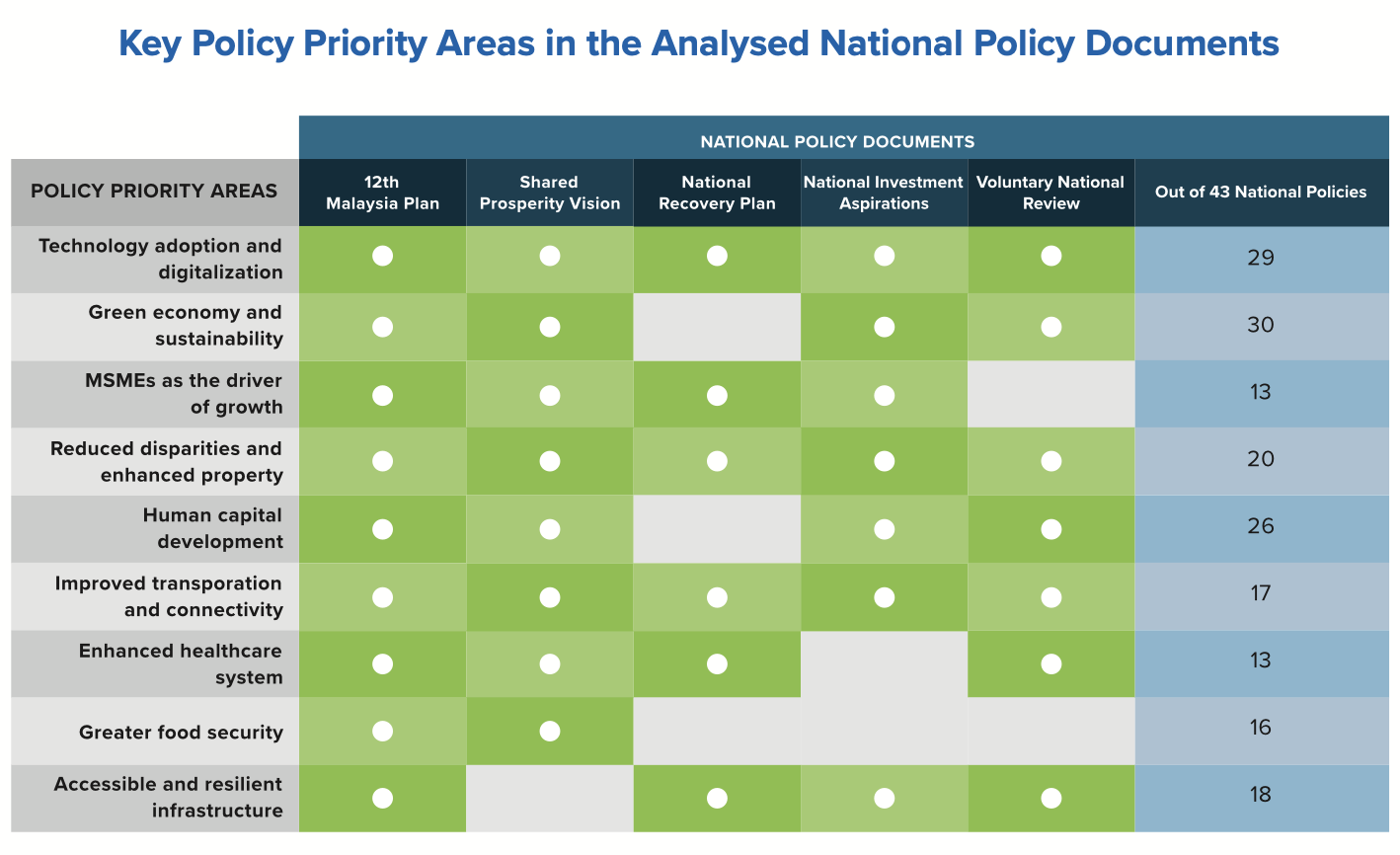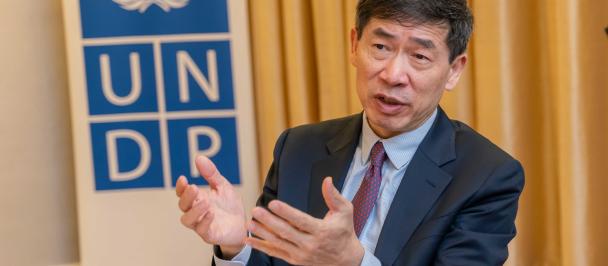Grounded in a message of hope, Manon Bernier, Resident Representative a.i. draws from the UNDP Signals Spotlight 2024 to reveal the variety of possible futures ahead - and where we can steer change.
Signals of Hope in a World of Uncertainties
October 1, 2024

This speech was first delivered by Manon Bernier, Resident Representative a.i. UNDP Malaysia, Singapore, Brunei Darussalam, at the 3rd edition of the Malaysian Sustainability Leadership Summit (MSLS) in Kuala Lumpur.
It is probably no surprise that we are not on track to achieve the SDGs. Only 17% are on course to be met by 2030, and some, like the goal of climate change, are even regressing.
Geographic disparities are becoming more pronounced, with inequalities between and within countries increasing every year since 2020.
In Malaysia, this is also true with widening disparities between urban and rural areas. Based on the Department of Statistics Malaysia’s Income Inequality report in 2022, the mean gross income in urban areas totalled RM 9,428 while the corresponding figure for rural areas totalled RM 5,147 in 2022. More worryingly, in 2019, the rural mean gross income was 58% of urban income, but in 2022, this ratio dropped to 55%. (1)

Manon Bernier delivering the opening speech at the 3rd Malaysian Sustainability Summit, which held the theme of "Collaborative Transformation For Sustainable Development" this year.
Demographic shifts are also impacting poverty in the future. Too many young people lack access to opportunities, which has led to underemployment, while an aging population is straining support systems.
It's easy to feel disheartened in a world where fragility, conflict, and climate change are increasingly pervasive. Countries are backsliding on human rights, corruption is corroding social contracts, and access to justice remains elusive for the marginalized.
Signal of hope
In 2024, UNDP looked for signals through a network of over 300 UNDP staff worldwide who continuously scan the horizon for signals of change.
We found three emerging areas where human ingenuity gives us reason to remain optimistic.
1. Hope for justice between species and generations
Dismayed by ecological loss and climate change, many people are becoming to acknowledge how deeply human and non-human entities depends on each other to survive and flourish. We start seeing evidence of longer-term thinking in law and policy, as Parliaments and governments establish futures bodies to eclipse the short-termism of electoral cycles.
Globally, there is also a movement towards recognizing the rights of nature in constitutions, laws, and even corporate governance. In Malaysia, integrating this perspective into policies can help preserve the rich biodiversity for future generations.
There is also a growing interest in alternative Economic Models: Concepts like circular economies, regenerative economies, are gaining traction as viable paths to sustainability. Malaysia, with its vibrant economy and rich natural resources, has the potential to be a leader in adopting these forward-thinking approaches.
2. Hope for responsible technology progress
Technology continues to reshape our world at an unprecedented pace. Artificial Intelligence (AI) holds the promise to bridge development gaps in key areas such as agriculture, healthcare, pollution control, and education. If governed effectively, these advances could be instrumental in accelerating progress towards the SDGs.
One example is the global food system which is an area of extraordinary innovation that would unlock a lot of value and deliver significant health and environmental benefits. Signals like regenerative agriculture, and biodegradable preservation products, etc. suggest that a combination of changing values, interest in using ancestral and indigenous knowledge, and technological innovation in food is powering new markets and could deliver significant health and environmental benefits.
In Malaysia, we are already witnessing the potential of technology to revolutionize sectors like smart farming, providing scalable solutions to some of our most pressing challenges. In 2023, UNDP in partnership with MITI and MIDA, launched The SDG Investor Map which identified 15 SDG-enabling investment opportunity areas, which would help deliver some of these solutions at scale.

Table 1: Key Policy Priority Areas in the Analysed National Policy Documents
But as we know, the impact of technology is not always equal and equitable. They can have enormous and unequal social and economic impacts. It’s not enough to make technology available; how they are governed and how their benefits are shared is equally important to ensure no one is left behind.
Developing robust and inclusive governance frameworks, especially at the national level, will be critical, and this is where the role of the government in convening discussions and regulations about these frameworks is important.
3. Hope for resilient and connected communities
Despite being in a time where disinformation is splintering truth and diminishing trust in institutions, there are encouraging signs that communities are finding new ways to build resilience and strengthen social cohesion.
We see hope in new forms of political engagement: Despite concerns about living in a "post-truth" era, we see that people, especially young people, are engaging in democracy and with their communities in new and creative ways. In Malaysia, our youth are increasingly using social media, digital platforms, and even gaming to express their political views and drive social change. This kind of engagement is crucial for fostering a vibrant and inclusive society.
There are also signs of hope in intergenerational values. People are attaching value to things that used to be taken for granted like clean air and water. Communities and startups are also investing in intergenerational connections. Scores of vibrant and active community-based and civil society organisations regularly come together to further causes—especially at the local level—and for Malaysia, this trend presents an opportunity to create policies and social systems that support a more interconnected and adaptable society, where the wisdom of older generations can blend with the innovation of the young.
Conclusion: Why feeling hopeful matters.
These signals of hope remind us that while the challenges are great, so too are the opportunities.
But why does it matter whether we feel hopeful? Because our outlook on the future influences the choices we make today. People generally pay the most attention to the future they consider most likely or plausible, but, as the UNDP Administrator said “…the most important future is the future the greatest number of people believe the most…the future on which they are basing their decisions and actions”.
As we work together towards achieving the SDGs, let us embrace these signals as beacons of possibility. With innovation, cooperation, and a steadfast commitment to equity and sustainability, we can build a future that is not only prosperous but also just and inclusive for all.
Thank you.
Reference
- Income Inequality Report (2022). Department of Statistics, Malaysia. Retrieved from https://www.dosm.gov.my/uploads/release-content/file_20231114122457.pdf

 Locations
Locations



